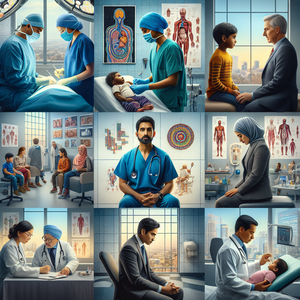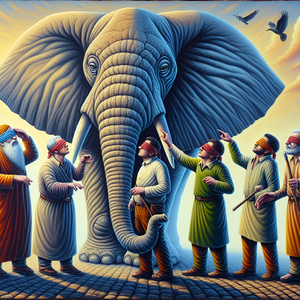Exploring the Unconventional: Unique Doctor Roles You Didn't Know Existed

Forensic pathologists occupy a critical niche in the medical field, often working behind the scenes to uncover the truth in death investigations. These doctors specialize in determining the cause of death through autopsies, and their findings can have significant implications for criminal cases and public health. For instance, forensic pathologists played a crucial role in the investigation of high-profile cases, such as the assassination of President John F. Kennedy. Their expertise helped clarify the circumstances surrounding his death, shedding light on the events that transpired. This profession requires not only extensive medical knowledge but also a strong understanding of legal systems, making it a unique blend of medicine and law. Forensic pathologists often collaborate with law enforcement and legal teams to provide expert testimony in court, thus playing an important role in the judicial system.
Medical Illustrators: Bridging Art and Science
Another lesser-known but vital role in the medical field is that of medical illustrators. These professionals are skilled artists who create detailed and accurate visual representations of biological subjects, assisting in education, research, and patient communication. Medical illustrators collaborate with healthcare professionals to produce images for textbooks, surgical manuals, and patient education materials. Their work is essential in helping convey complex medical concepts, making them more accessible to both medical professionals and the public. For example, the illustrations created for surgical procedures can be invaluable tools for teaching medical students and informing patients about their conditions. With the rise of digital media, medical illustrators are also adapting to create interactive and multimedia content that enhances understanding and engagement.
Telemedicine Specialists: The Future of Healthcare Delivery
The rise of telemedicine has given birth to a new category of medical professionals: telemedicine specialists. These doctors utilize technology to deliver care remotely, providing consultations, diagnosis, and treatment plans through virtual platforms. Especially relevant during the COVID-19 pandemic, telemedicine specialists have helped bridge the gap in healthcare access, ensuring that patients receive necessary care without the constraints of physical distance. Their role is vital not only in urban areas but is particularly transformative in rural and underserved communities, where access to traditional healthcare facilities may be limited. For instance, a telemedicine specialist can provide consultations to patients in remote locations, allowing them to receive expert medical advice without the need for extensive travel. This innovative approach to healthcare delivery is reshaping how patients interact with medical professionals.
Medical Science Liaison: The Bridge Between Science and Business
Medical science liaisons (MSLs) serve as a bridge between pharmaceutical companies and the medical community. These professionals, often with advanced medical degrees, provide clinical and scientific information about products to healthcare providers and researchers. MSLs play a critical role in ensuring that information regarding new drugs, therapies, and clinical trial results is effectively communicated. They help translate complex scientific data into actionable insights for healthcare professionals, fostering relationships between the pharmaceutical industry and the medical community. For instance, an MSL may conduct presentations about the latest advancements in cancer treatments, ensuring that oncologists are informed about the most effective options available for their patients. This role is crucial in promoting evidence-based medicine and improving patient care.
Global Health Physicians: Making a Difference Worldwide
Lastly, global health physicians dedicate their careers to improving health outcomes worldwide, often working with international organizations and NGOs. These doctors may be involved in numerous activities, from responding to health crises in disaster zones to leading vaccination campaigns in underserved populations. Their efforts not only save lives but also promote health equity on a global scale. For example, physicians working with organizations like Doctors Without Borders often find themselves in challenging environments, providing care in conflict zones or during epidemics. Their work exemplifies the profound impact committed healthcare professionals can have on communities around the world. By addressing health disparities and advocating for vulnerable populations, global health physicians play an integral role in shaping public health policy and practices internationally.
The medical field is rich with opportunities that extend far beyond the typical roles we often associate with doctors. From forensic pathologists and medical illustrators to telemedicine specialists and global health physicians, these unique professions highlight the diversity and adaptability of healthcare. As we expand our understanding of what it means to be a doctor, we can appreciate the myriad ways in which medical professionals contribute to society—often in unexpected and unconventional ways. By shedding light on these roles, we can inspire future generations of medical professionals to explore the full spectrum of possibilities available within the healthcare landscape, ultimately enriching the field and improving patient care on a global scale.
Forensic Pathologist
State and county medical examiner offices, federal agencies (e.g., FBI), hospitals with forensic units.
Core Responsibilities
Conduct autopsies to determine the cause and manner of death.
Collaborate with law enforcement and legal teams to provide expert testimony in court.
Analyze medical records, toxicology reports, and other evidence to aid investigations.
Required Skills
Advanced medical degree (MD or DO) with specialized training in forensic pathology.
Strong analytical and investigative skills to interpret complex data.
Excellent communication skills for presenting findings clearly in legal settings.
Medical Illustrator
Medical schools, publishing companies, healthcare organizations, and freelance opportunities.
Core Responsibilities
Create detailed visual representations of medical and biological subjects for educational materials.
Collaborate with healthcare professionals to produce illustrations for textbooks, surgical manuals, and digital media.
Utilize digital tools and software to create interactive content that enhances understanding of medical concepts.
Required Skills
Bachelor's or master's degree in medical illustration, art, or a related field.
Proficiency in graphic design software such as Adobe Illustrator and Photoshop.
Strong understanding of anatomy and medical terminology.
Telemedicine Specialist
Hospitals, telehealth companies, outpatient clinics, and healthcare startups.
Core Responsibilities
Provide remote consultations and treatment plans via video conferencing and telehealth platforms.
Monitor patients' health through digital tools, ensuring continuity of care outside traditional settings.
Educate patients about managing their health conditions remotely.
Required Skills
Medical degree (MD or DO) and appropriate licensing for telehealth practice.
Familiarity with telehealth technology and platforms.
Strong interpersonal skills to build rapport with patients remotely.
Medical Science Liaison (MSL)
Pharmaceutical companies, biotech firms, and medical device manufacturers.
Core Responsibilities
Serve as a scientific resource for healthcare providers regarding new drugs and therapies.
Conduct presentations and educational sessions for medical professionals about clinical trial data and treatment options.
Foster relationships between pharmaceutical companies and the medical community to enhance collaboration.
Required Skills
Advanced degree (PhD, MD, or PharmD) in a relevant scientific field.
Strong presentation and communication skills to convey complex information effectively.
Ability to build and maintain professional relationships within the medical community.
Global Health Physician
International health organizations (e.g., WHO, Doctors Without Borders), NGOs, and government agencies.
Core Responsibilities
Address health disparities and improve health outcomes in underserved populations worldwide.
Lead health initiatives, such as vaccination campaigns and disease outbreak responses, in collaboration with NGOs and governmental organizations.
Advocate for public health policies that promote equity and access to healthcare services.
Required Skills
Medical degree (MD or DO) and experience in public health or international medicine.
Cultural competency and adaptability to work in diverse environments.
Strong problem-solving skills to navigate complex health challenges in varying contexts.


